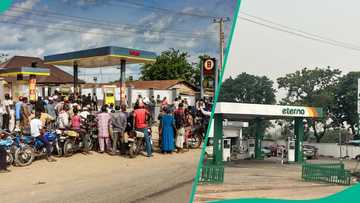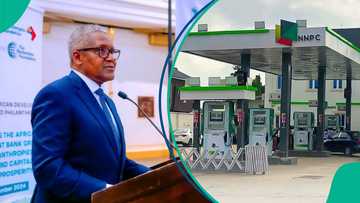The NUPENG Strike Suspension and the Aversion of a Financial Crisis, by Kangiwa Abdullahi
Editor’s note: In this piece, Kaduna-based policy analyst Kangiwa Abdullahi explains how NUPENG’s strike against Dangote Refinery was suspended and why Finance Minister Wale Edun’s intervention mattered for protecting workers’ rights and economic stability.
The resolution of what threatened to be a major nationwide petrol supply disruption crisis has brought huge relief to Nigerians who feared the worst.
But perhaps a more d͎a͎m͎n͎i͎n͎g͎ scenario was feared: a derailment of the economic agenda of the government through the disruption of the economy’s main product with far-reaching multiplier effects.
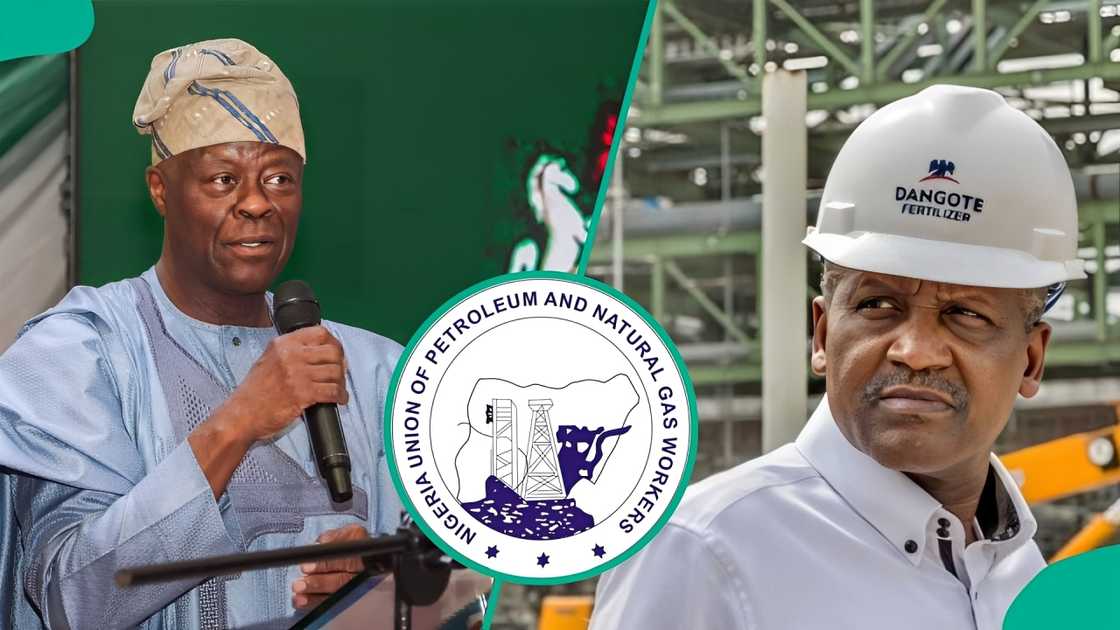
Source: Twitter
This may explain the crucial role played by Wale Edun, Nigeria’s Minister of Finance and Coordinating Minister of the Economy, in resolving the dispute and averting a real crisis.
Overview of the dispute
On September 8, 2025, the Nigeria Union of Petroleum and Natural Gas Workers (NUPENG), representing fuel tanker drivers, initiated a strike against Dangote Refinery and Petrochemicals.
The action stemmed from allegations that the refinery was hiring new drivers on the condition that they refrain from joining unions, which NUPENG viewed as a violation of workers’ rights to unionise under Nigerian labour laws. Dangote’s management denied these claims, labelling them as “cheap blackmail,” but the dispute escalated tensions in Nigeria’s oil sector.
The refinery, Africa’s largest with a capacity of 650,000 barrels per day, has been pivotal in reducing the country’s reliance on imported petrol, but its operations have also sparked concerns over monopoly and friction with existing tanker operators, particularly related to the planned deployment of compressed natural gas-powered trucks.
The planned strike garnered significant support from domestic bodies like the Nigeria Labour Congress (NLC) and Trade Union Congress (TUC). Despite the hiccup, Dangote’s spokesman, Anthony Chiejina, assured the public of no fuel shortages during ongoing talks.
The resolution process
The crisis was swiftly resolved through high-level interventions, culminating in the suspension of the strike with immediate effect. A key conciliation meeting was convened by the Federal Ministry of Labour and Employment on Monday, September 8, 2025, involving NUPENG’s national executives, NLC and TUC representatives, and officials from the Nigerian Midstream and Downstream Petroleum Regulatory Authority (NMDPRA) and Dangote Group. This paved the way for a more decisive closed-door session presided over by the finance minister.
The outcome was a binding Memorandum of Understanding (MOU) that affirmed unionisation as a fundamental right under extant labor laws. It mandated the immediate commencement of the unionisation process for willing employees at both the refinery and petrochemicals divisions, to be completed within two weeks (September 9–22, 2025).
Crucially, the agreement prohibited the employer from establishing any alternative unions and ensured no victimisation of workers arising from the strike notice. Parties are required to report progress to the Minister of Labour one week after the process concludes, ensuring accountability and follow-through.
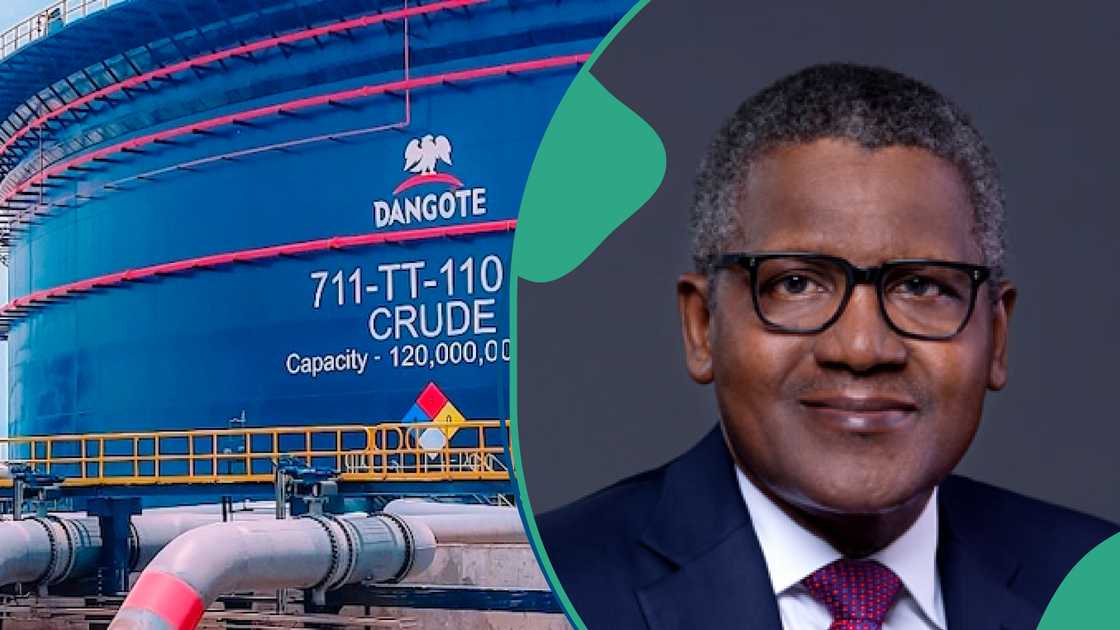
Source: UGC
The MOU was signed by key figures, including:
- Dangote Group representatives: Managing Director Sayyu Dantata, Ojimba Jibrin, and others.
- NMDPRA: O.K. Ukoha.
- Labor unions: Benson Upah (Acting NLC General Secretary), N.A. Toro (TUC), NUPENG President Akporeha Williams, and General Secretary Afolabi Olawale.
- Federal Ministry of Labour and Employment: Amos Falonipe, Director of Trade Union Services & Industrial Relations, signing on behalf of the Minister.
This resolution not only halted the immediate threat to fuel distribution but also reinforced labour protections in a strategically vital industry, potentially averting broader economic ripple effects.
Wale Edun and the fiscal angle
The participation of Wale Edun, Nigeria’s Minister of Finance and Coordinating Minister of the Economy, in the resolution process was instructive. He presided over the pivotal closed-door meeting, which directly led to the agreement. This session included the DSS and NLC representatives and was instrumental in bridging the gap between the unions and Dangote’s management.
Edun’s involvement was crucial not just for his authority but for what he represents: the federal government’s acute awareness of the economic stakes. As finance minister, he oversees fiscal policy and economic stability, and as coordinating minister, he aligns broader economic strategies.
The strike, driven by NUPENG’s claims of anti-union practices at Dangote Refinery, risked fuel shortages and price spikes, which could have possibly unravelled the administration’s much-touted economic reform agenda, tied to reducing reliance on imported petrol and stabilising inflation. Such a disruption would have hit Nigerians hard, escalating living costs and undermining confidence in reforms.
By engaging in the mediation, Edun signalled the government’s recognition that a prolonged crisis could derail these goals and harm public welfare. His role, while subtle, lent high-level gravitas to the talks, reinforcing the urgency of a resolution.
This cross-ministerial effort, alongside the Ministry of Labour, ensured the MOU’s swift adoption, protecting both workers’ rights and the economic well-being of Nigerians reliant on stable fuel markets.
It is hoped that going forward, the same template should be adopted to forestall crisis with real impact on the economy and the well-being of the Nigerian people.
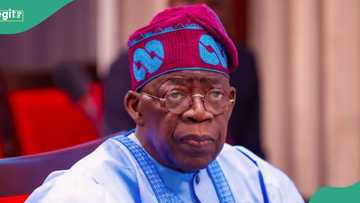
Read also
Obidients warn Tinubu against proposed 5% fuel surcharge, “Nigerians are pushed deeper into poverty”
Kangiwa Abdullahi is a Kaduna-based policy analyst.
Disclaimer: The views and opinions expressed here are those of the author and do not necessarily reflect the official policy or position of Legit.ng.
Source: Legit.ng


